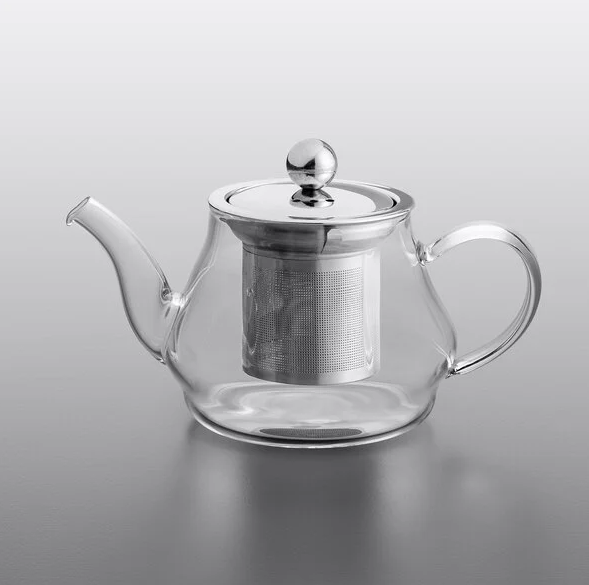10 Lemon Tea Benefits
When life gives you lemons, is there anything better to do than make a cup of tea? Lemons can make every tea better, but they can also give a delicious cup of pure lemon tea. The best part? Lemons are available everywhere.
What is lemon tea
Lemon tea is a simple, refreshing and tasty drink that you can easily make at home. Depending on your preferences, you can make lemon tea with fresh lemons only, or by mixing lemon with other ingredients – such as real tea. Whichever recipe you choose, lemon may add multiple benefits. Combine them to suit your needs. For example, high caffeine black tea is great for morning tea time, and with added lemon it may offer more benefits. Lemon and black tea are not only the western tradition. There are special types of Chinese tea that are made with adding tea leaves into a whole lemon or tangerine peel.How is lemon tea good for you?
Lemon tea doesn’t only taste great, it may provide multiple benefits.1. Antioxidant and anti inflammatory activity
Ascorbic acid, or in other words – Vitamin C, may help boost immune system. In fact, Vitamin C is one of the most popular, well known, and important micronutrients. It may help lower the risk of infections and protect against environmental oxidative stress[1] and reduce inflammation. But it’s not only the Vitamin C that’s responsible for boosting immune system. Flavonoids in lemon may help to protect against free radicals[2] and reduce the risk of many diseases.2. Anti-aging properties
Lemons may be one of the most easily available and delicious anti-aging foods. Vitamin C is a very popular ingredient in different skin care products – especially anti-aging and brightening. However, studies showed that ingesting lemons may help with premature skin aging too by increasing collagen content and reducing wrinkle formation.3. Antibacterial activity
One research showed that drinking lemon tea may provide better antibacterial activity against some bacteria – even more beneficial than drinking pure green or black tea[3].4. Anticancer activity
Study showed that black tea combined with lemon peel may offer better anticancer activity compared to the black tea only[4].5. Regulating high blood sugar
Both lemon juice and lemon peel may be beneficial for people with higer risk of diabetes or those already diagnosed. Research found that lemon peel may help lower high blood sugar[5]. Furthermore, citric acid in lemon juice may help prevent some complications related to type 2 diabetes[6].6. Mental health
Studies showed that citruses may help reduce the chances of developing mental illnesses. They may help with anxiety and diseases such as Alzheimer diesease[7].7. Lowering blood pressure
Daily intake of lemons combined with walking may have a good effect on blood pressure[8] and help in preventing cardiovascular disease.8. Benefits for digestive system
Drinking warm water with lemon first thing in the morning is a well-loved routine by many people. It may help cleanse the digestive tract, aid in digestion and help with weight loss[9]. Studies showed that that to get the most of this routine, drink lemon water first thing in the morning and avoid caffeine or caffeinated tea.9. Soothing sore throat or cough
Studies showed that drinking lemon together with honey may be helpful for reducinga cough and improving the quality of your sleep[10].10. Preventing kidney stones
Lemon juice is a natural diuretic. Studies showed that citric acid (different from ascorbic acid) may help in reducing the risk of developing kidney stones[11].How to add lemon to tea
If you want to combine the benefits of real or herbal tea with the benefits of lemons, there are several ways to do that.- Add freshly squeezed lemon juice into your tea. Wait for a couple of minutes, at least until the tea is steeped and add lemon juice.
- The other way of enjoying the benefits of lemon is adding dried lemon peel. You can dry the peel at home. Choose organic lemons and always wash them before drying.
- Mix grated fresh lemon peel and steep it with tea leaves. Choose organic lemons with a clean peel.
- Add a drop of lemon essential oil into your tea. Make sure that the essential oil you are using is safe for ingestion and of a suitable food grade.
- Mix a few drops of lemon essential oil with dry tea leaves. Shake and store in an airtight container. Oil has to be suitable for ingestion.
How to make pure lemon tea
To make pure lemon tea, you will need fresh lemons. Although the amount may vary depending on your preferences, use at least ½ of lemon per cup of hot water. Bring fresh water to a boil, let it cool down for a few minutes, then add lemon juice and honey. Another easy way of making pure lemon tea is by boiling washed and sliced lemon in a cup of water for 10 minutes. Keep in mind that boiling may lower the amounts of beneficial compounds. You can add ginger, cinnamon, green or black tea, dried flowers or fruits too.Which teas taste the best with lemon?
All teas may taste great with lemon. Lemon can enhance the flavor of green tea, even those you don’t particularly enjoy. Black tea is more tricky though – some are better pure with no added condiments. Chamomile and lemon are a great pair too, and so is the mint and lemon tea. Zesty fruit teas with hibiscus will taste delicious with a few drops of lemon. Try some of the following blends:Dislaimer: This article is for informational purposes only. It’s not intended to replace medical advice, diagnosis or treatment. Every person is different and may react to different herbs and teas differently. Never use teas or herbs to treat serious medical conditions on your own. Always seek professional medical advice before choosing home remedies.
References
[1] https://pubmed.ncbi.nlm.nih.gov/29099763/ [2] https://www.ncbi.nlm.nih.gov/pmc/articles/PMC7154898/ [3] https://www.ncbi.nlm.nih.gov/pmc/articles/PMC5654184/ [4] https://www.ncbi.nlm.nih.gov/pmc/articles/PMC45584/ [5] http://www.diabetesincontrol.com/lemon-peel-for-diabetes/ [6] https://www.ncbi.nlm.nih.gov/pmc/articles/PMC2917331/ [7] https://www.ncbi.nlm.nih.gov/pmc/articles/PMC7154898/ [8] https://www.ncbi.nlm.nih.gov/pmc/articles/PMC4003767/ [9] https://www.ejpmr.com/home/abstract_id/220 [10] http://www.journalijar.com/uploads/653_IJAR-5897.pdf [11] https://www.uwhealth.org/files/uwhealth/docs/pdf/kidney_citric_acid.pdf
More from:
SLL



Leave a comment